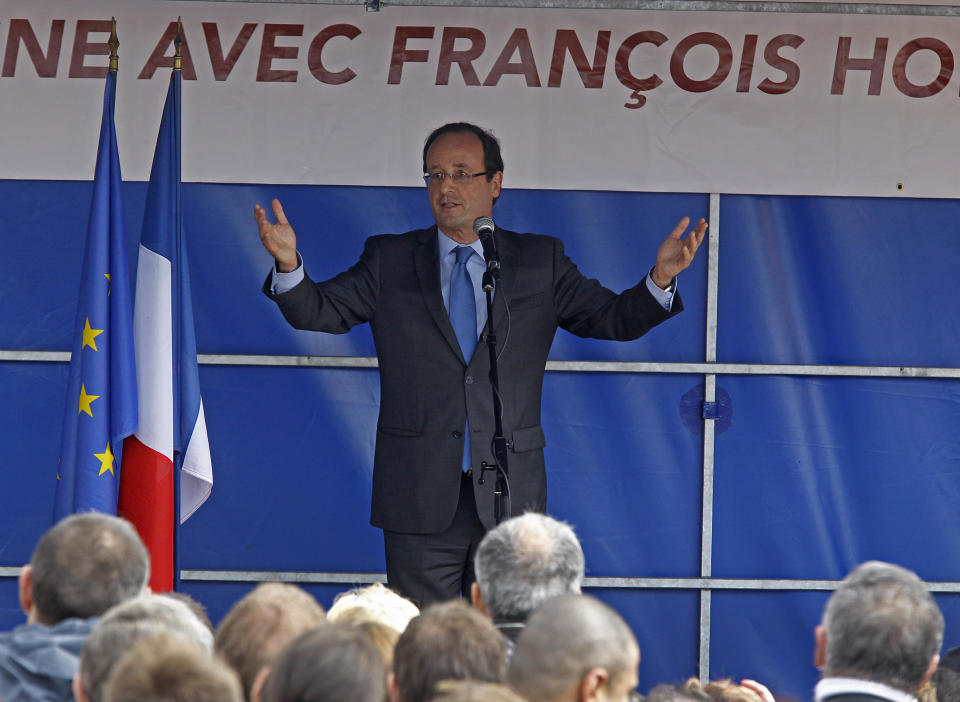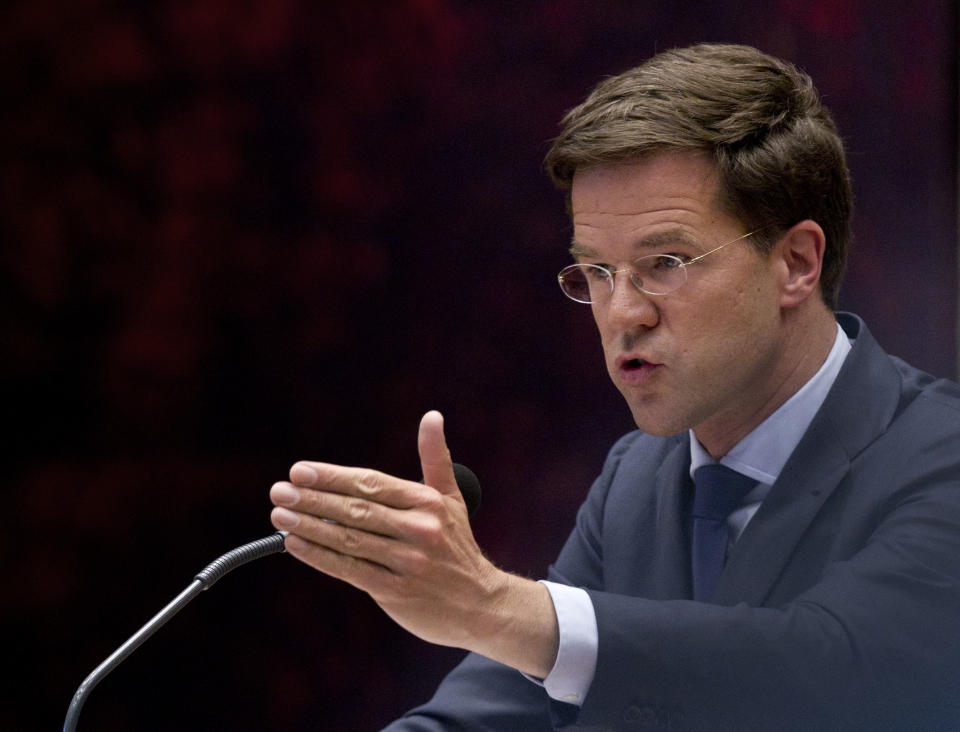EU voters, citizens rebel against austerity
BRUSSELS (AP) — For more than a year European Union officials seeking to solve Europe's debt crisis have been baying for austerity, austerity and more austerity. Now the people of Europe are taking their backlash from the streets to the ballot box — possibly forcing a change of direction.
Governments have fallen, more are at risk and, in some places a stark streak of nationalism seems on the rise that could swing Europe ever deeper into a fortress mentality.
At stake is the future of Europe, where countries rich and poor are struggling with mountains of debt and moribund economies — a toxic combination that often seems to require contradictory remedies of belt-tightening and economic stimulus.
Increasingly, the long focus on austerity is convincing Europeans that the German-led mantra of fiscal responsibility is creating a vicious circle of more misery leading to lower growth — leading to even greater debt distress.
"I think what is happening in Europe is the austerity drive is actually slowing down the necessary rebalancing of European economies," said Simon Tilford, chief economist at the Center for European Reform.
People in Europe seem to have had enough of this particular medicine.
In France, President Nicolas Sarkozy, one of the architects of the EU's response to the financial crisis, is in danger of getting turned out of office in May by Francois Hollande — a Socialist who is promising not to cut, but to increase public spending by €20 billion ($26.3 billion) by 2017.
Hollande is promising also to re-negotiate a much vaunted budgetary pact among 25 EU countries meant to enforce national fiscal discipline.
Greece votes in elections next month in which fringe parties hostile to international bailouts requiring steep austerity are expected to make big gains — possibly endangering efforts by the current technocratic government to rein in the nation's debt.
And the Netherlands' 18-month old conservative coalition resigned this week after it failed to agree on cutting its own budget deficit to meet the EU limits it had demanded so fiercely of other countries.
Beyond that, in the Czech Republic, almost 100,000 people rallied in Prague's downtown Wenceslas Square last weekend to protest government reforms and cuts, calling on the government to resign. And earlier this year, tens of thousands of Romanians bitter about savage public sector wage cuts took to the streets and the government collapsed.
"I don't think there are any examples of countries accepting endless austerity and downward standards of living," Tilford said. "There has to be light at the of the tunnel."
Voters may be wise to reject unrelenting cuts. But in their desire to avoid pain, they may also be prompting politicians to put off decisions that Europe must take to remain competitive globally.
Many experts say that labor markets must be reformed, for example by making it easier for employers to hire and fire workers, in order to spur investment and halt the trend of ballooning unemployment. Growing fears about globalization have caused many governments to promise to cool their commitment to free markets.
And the anger appears to be driving voters to the extremes. In the first round of the French presidential election last weekend, nearly one voter in five voted for the Front National, a hard-right party previously seen as having primarily a xenophobic appeal.
That, along with the 11 percent showing by far-left candidate Jean-Luc Melenchon, shows a high level of anger, said Piotr Kaczynski, a research fellow at the Brussels-based Center for European Studies.
"The big winners of the French elections are the extreme parties — extreme right and extreme left — with more than 30 percent," Kaczynski said.
The rise of the fringes is in no way limited to France. In Greece, the neo-Nazi Golden Dawn party is marching ahead in the polls — and may win a dozen or so seats in parliament.
And it was a right-wing politician stridently critical of Islam who brought down the government of Dutch Prime Minister Mark Rutte this week. Geert Wilders, whose support was critical to Rutte's minority government, decided to withdraw his support over the government's budget-cutting plans.
"With the Rutte government's resignation, the pro-cyclical austerity course in Europe has once again proven to be the biggest disposal program for governments in recent history," Germany's Financial Times Deutschland commented in an editorial Tuesday.
German Finance Minister Wolfgang Schaeuble criticized Wilders' actions in acid tones.
"We have always known that, if one votes for radical right-wing euro-skeptic parties and xenophobes, one makes democracy not more stable but more unstable," Schaeuble said. "That can be seen now in Holland. So my advice is, don't vote that way."
But as Europe evolves, the Germans may wind up as the big losers. They have been the ones most insistent on enforcing austerity among EU countries, warning of the "moral hazard" of helping out countries that have not endured sufficient pain as a result of past indiscipline.
Now, it is possible that the future of Europe may lie with politicians like Hollande, who is favored to defeat Sarkozy in the presidential runoff. Hollande has promised to increase taxes on the rich, create 60,000 new teaching jobs and subsidize 150,000 jobs for young people.
On Tuesday, German Chancellor Angela Merkel was still staunchly defending her insistence on austerity.
"I want to say clearly, it is not the case that we say saving solves every problem but, if you at home talk about how you want to shape your life tolerably, then one of the first conditions is that you somehow get by with what you earn," she said.
But at least some economists are now calling for a return to priming the pump — even at the cost of higher deficits.
"There can be no fiscal sustainability across Europe as a whole without a return to economic growth," Tilford said.
____
Juergen Baetz in Berlin, Elena Becatoros in Athens, Alison Mutler in Bucharest, Toby Sterling in Amsterdam, and Karel Janicek in Prague contributed to this report. Don Melvin can be reached at http://twitter.com/Don_Melvin


